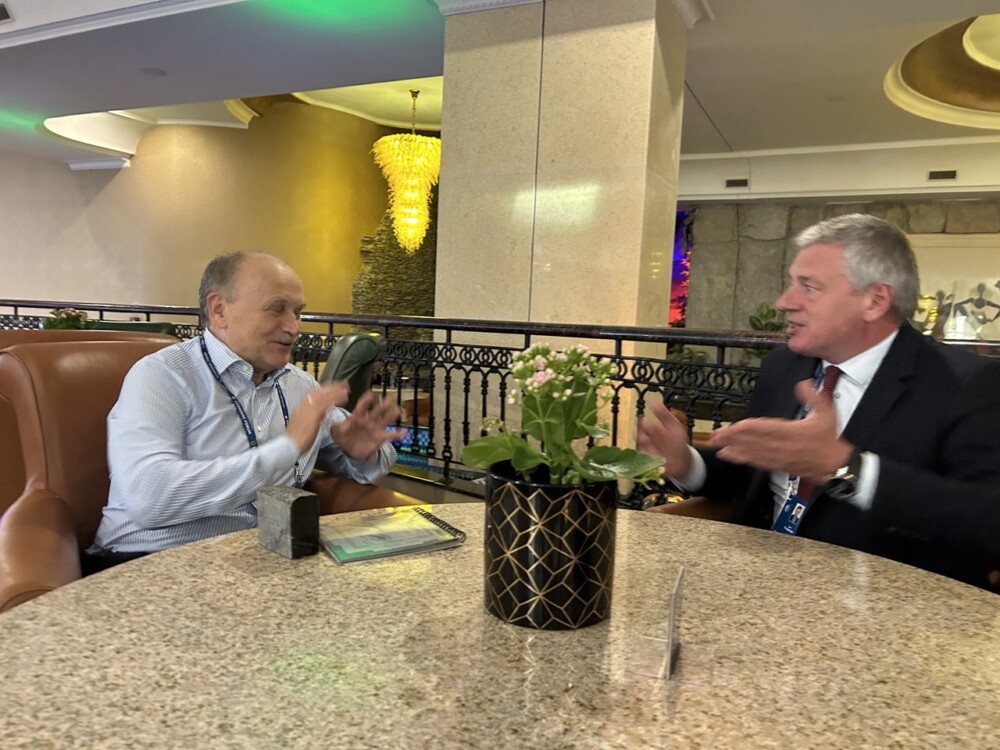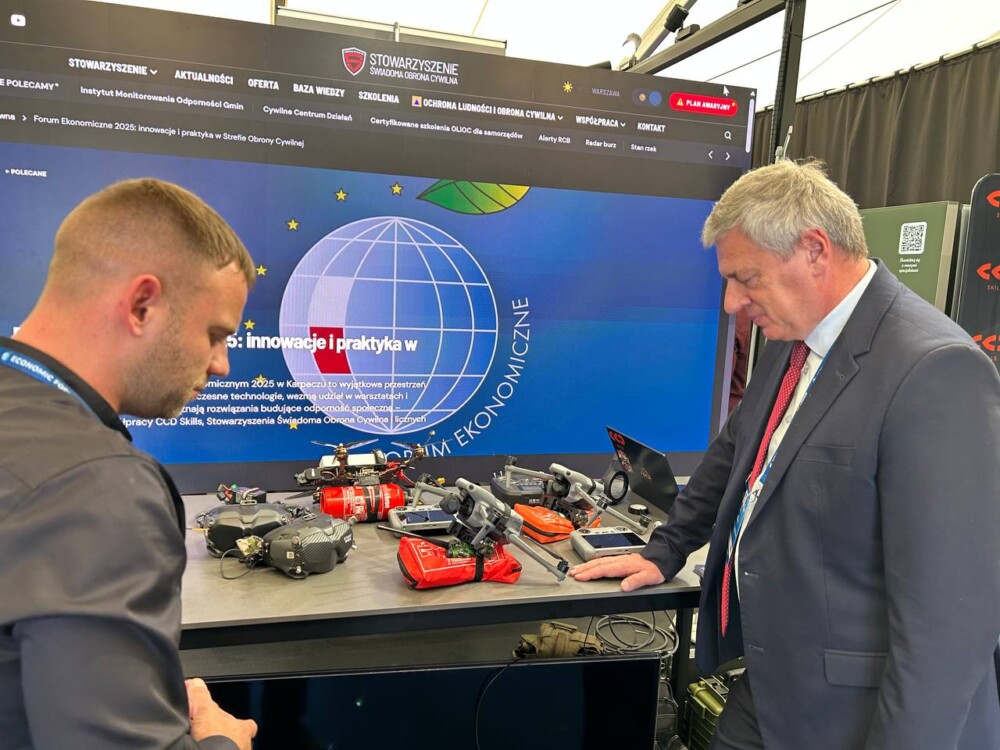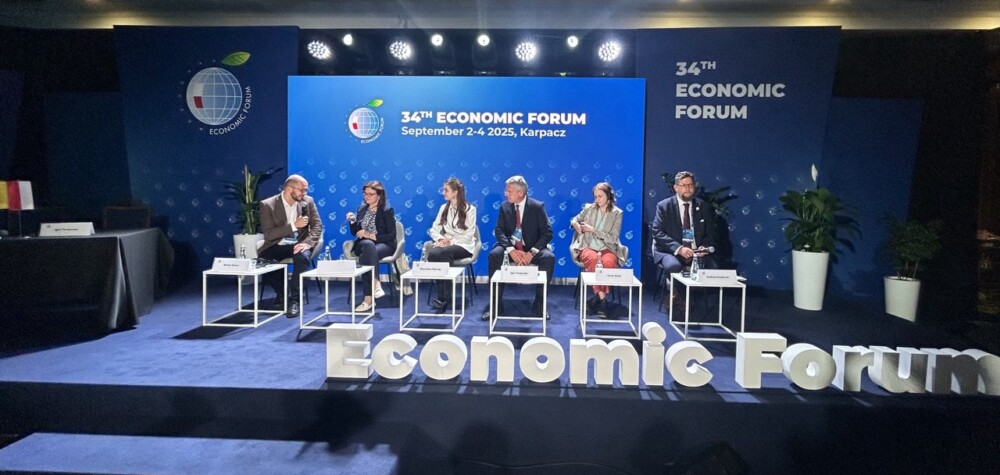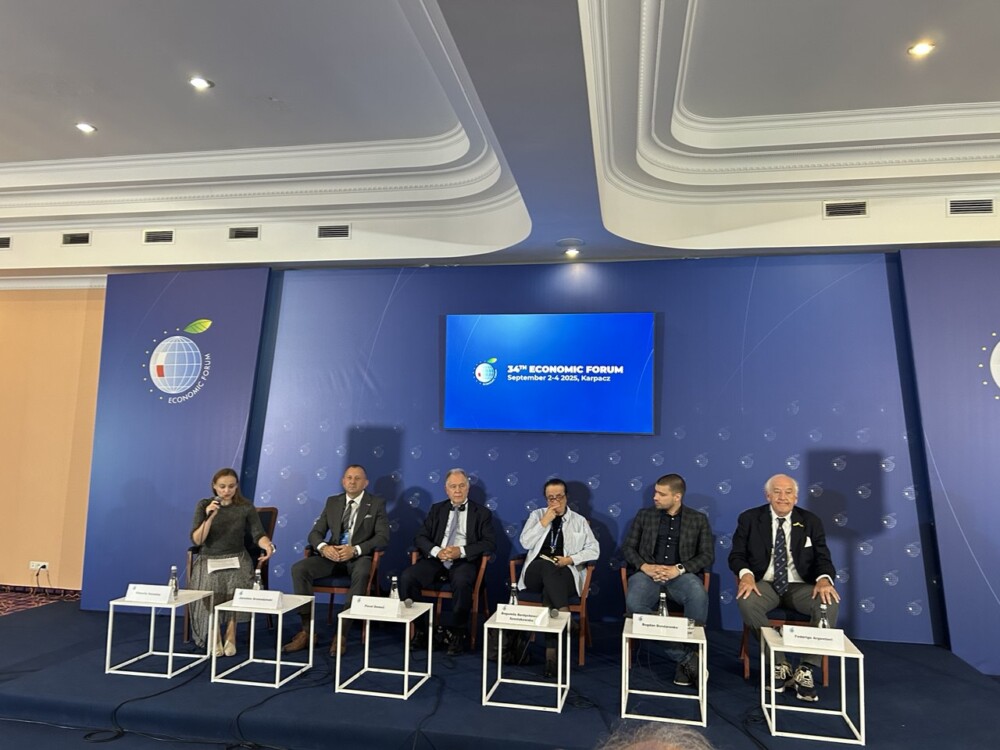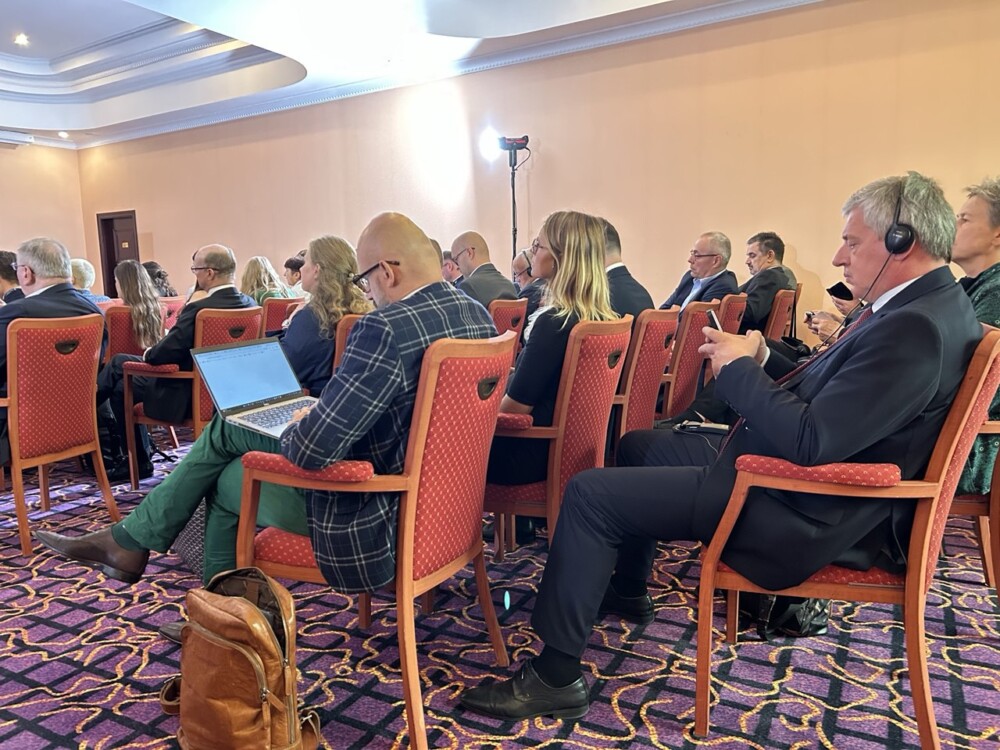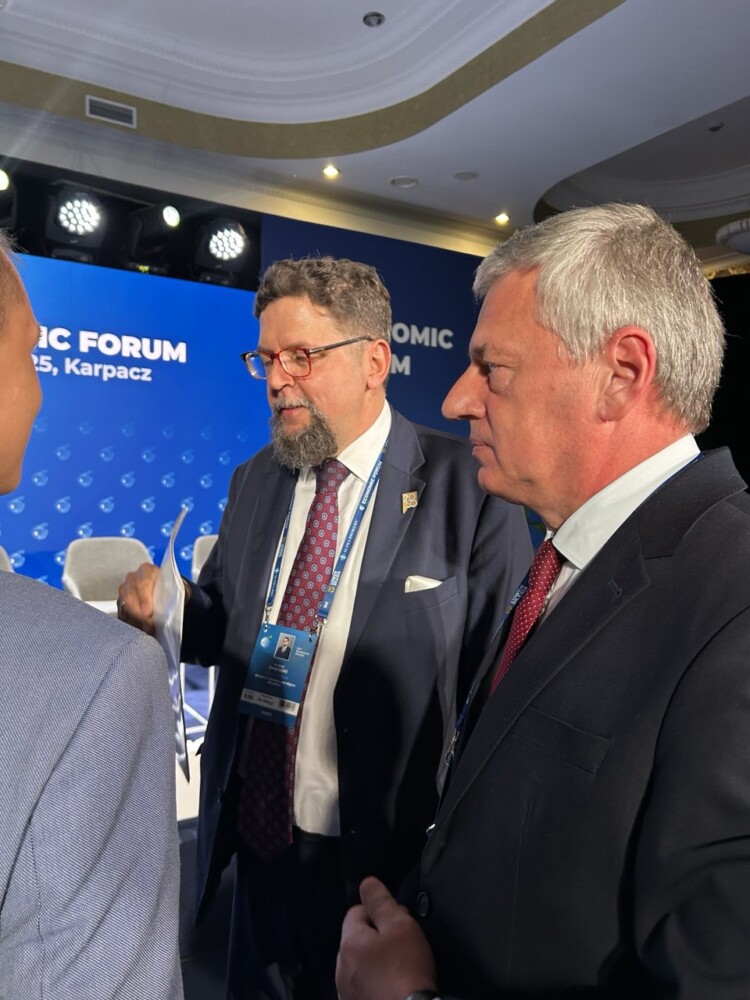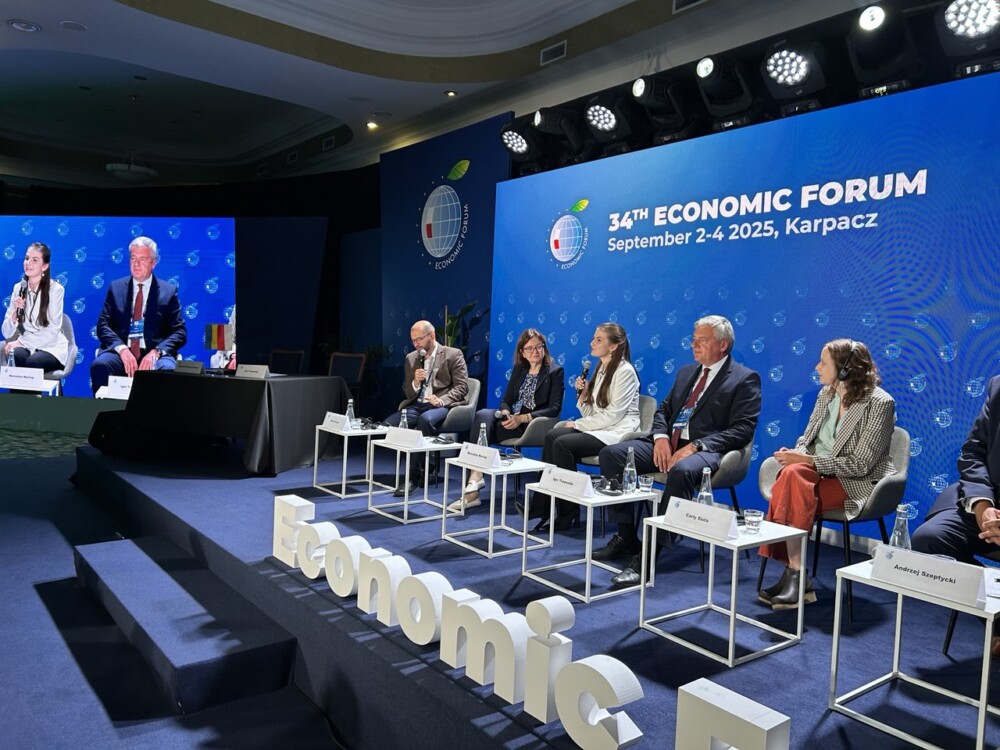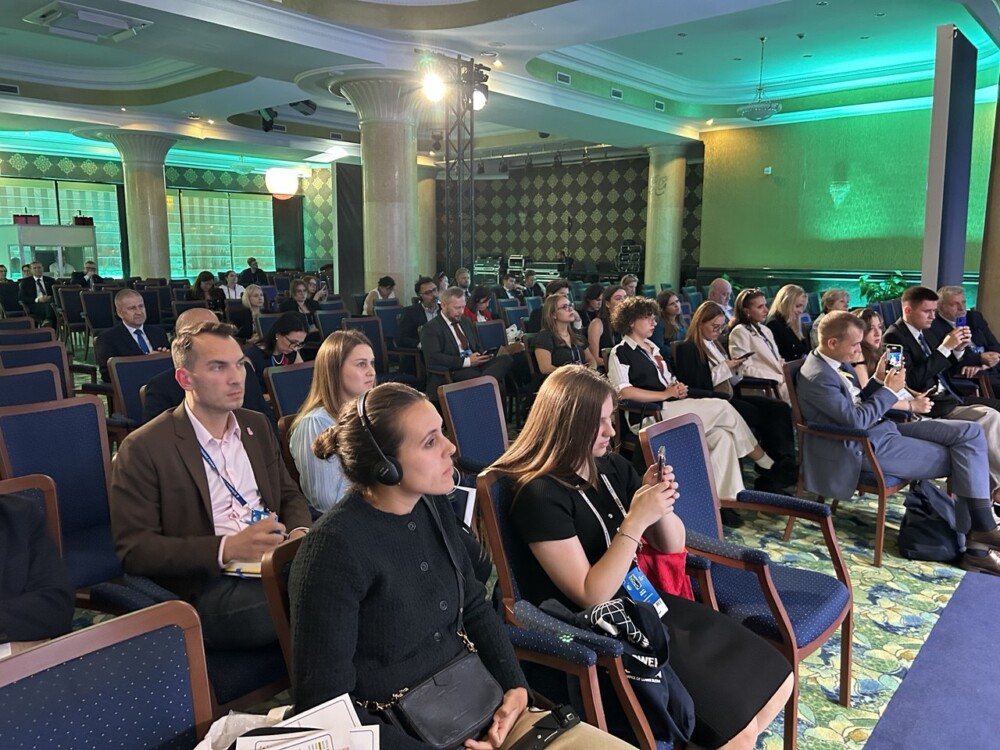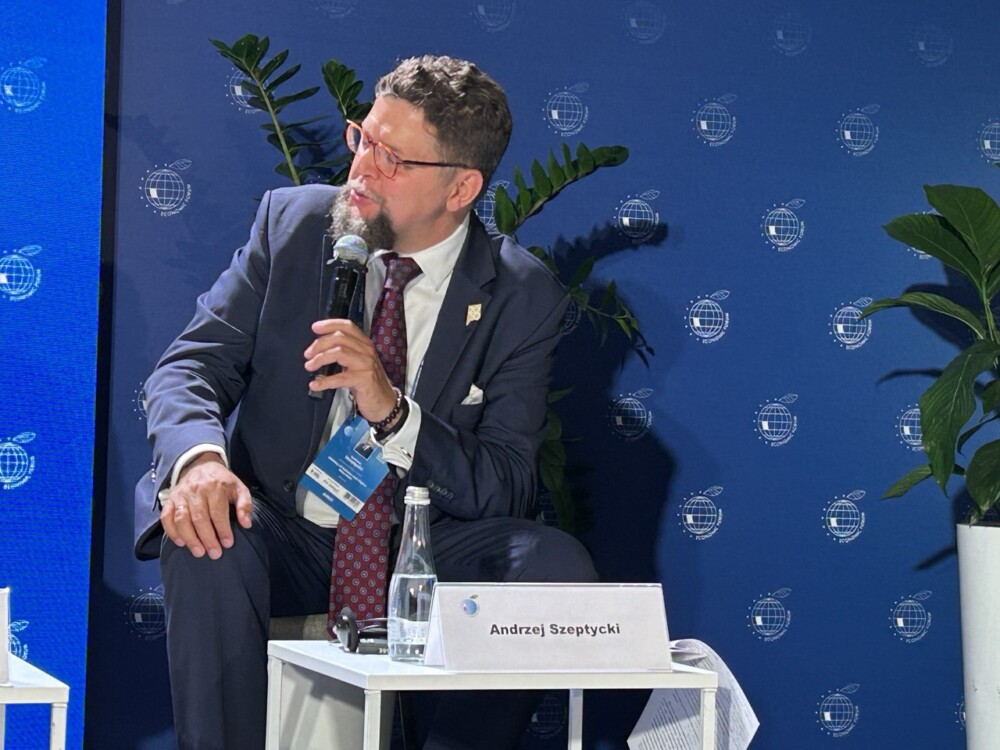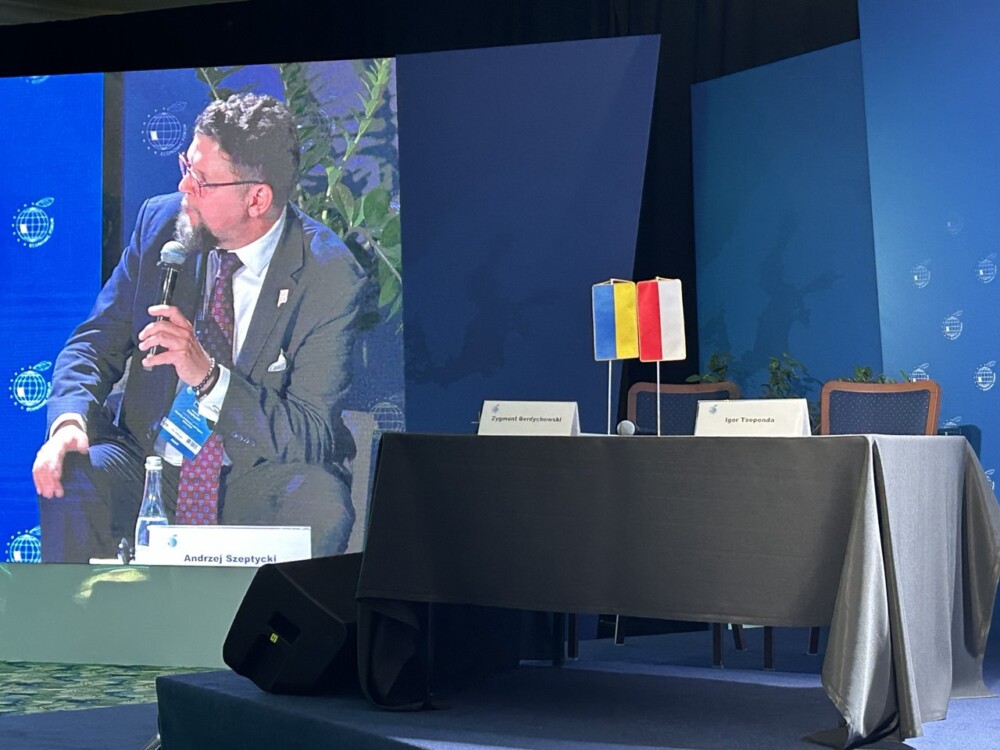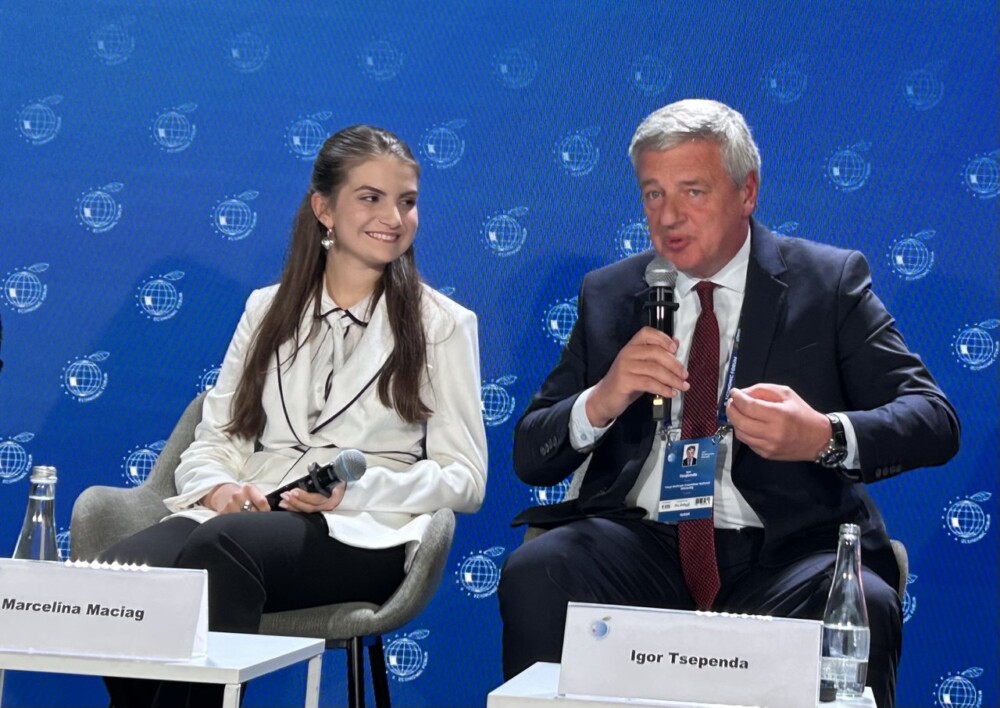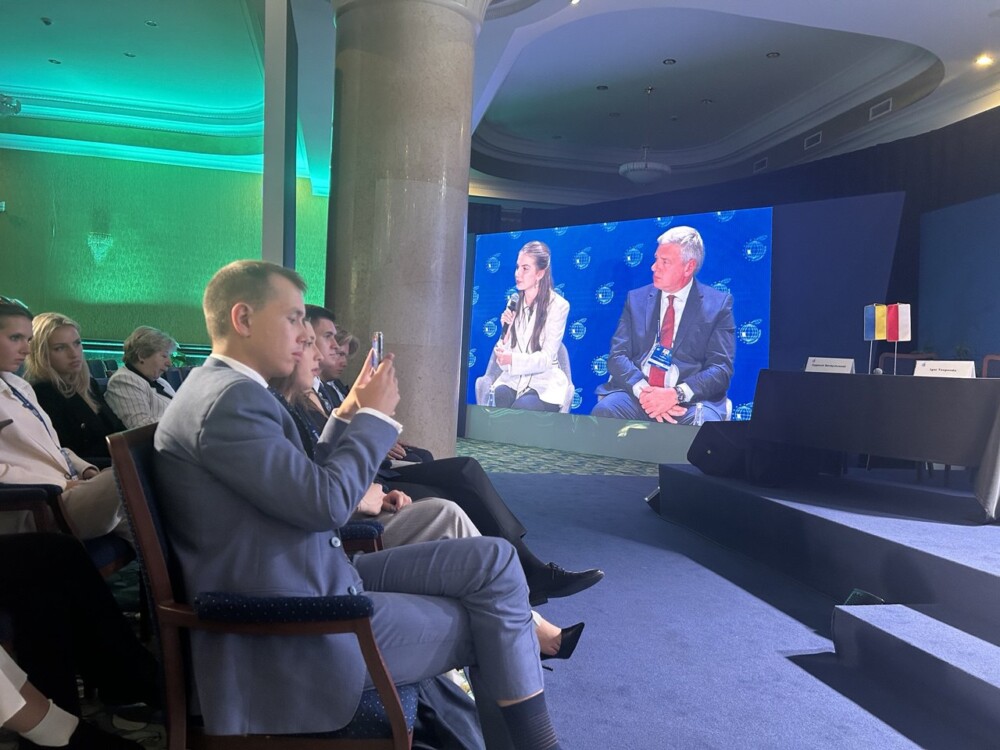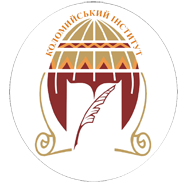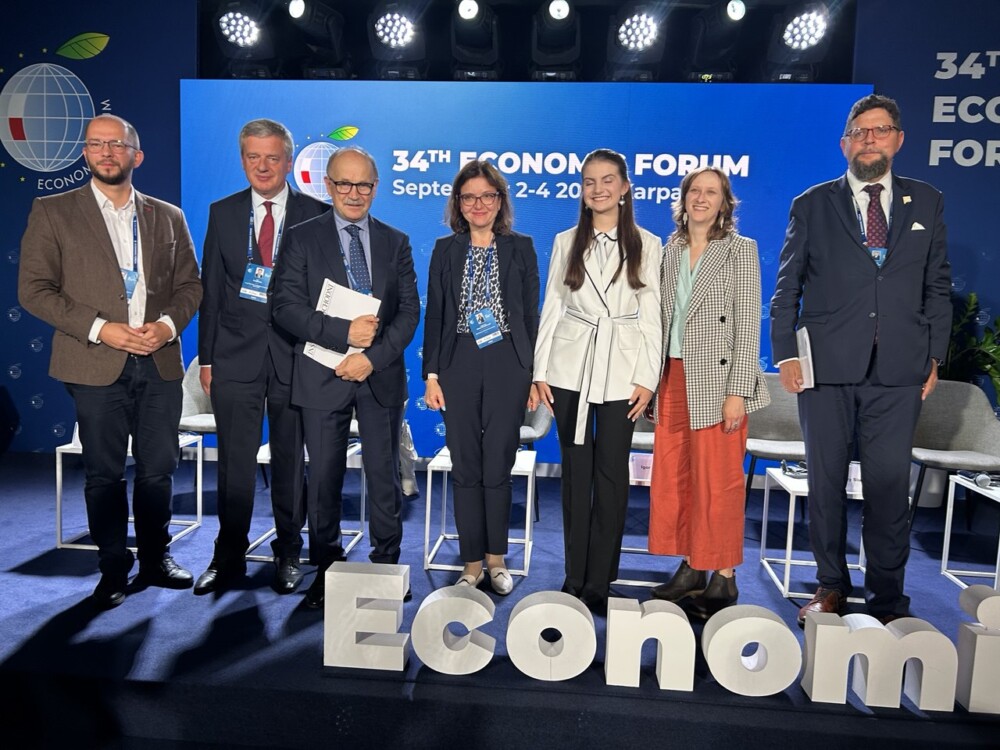On September 2–4, the Acting Rector of the Vasyl Stefanyk Carpathian National University, Ihor Tsependa, represented the university at the 34th Economic Forum in Karpacz (Republic of Poland).
The forum brought together over 6,000 guests who, over the course of three days, participated in numerous sessions, seminars, panel discussions, book presentations, and meetings with leading European experts.
Signing a student support agreement
As part of the Forum, Igor Tsependa and Zygmunt Berdychovsky, Chairman of the Program Council of the Institute of Oriental Studies Foundation, signed an agreement that establishes new additional formats for supporting talented university students.
The first results of these agreements have already been felt by students: on Knowledge Day, 14 freshmen with the highest competitive scores received certificates for educational bonuses of 500 USD (in hryvnia equivalent).
“I am grateful to Mr. Berdykhovsky and the Institute of Oriental Studies Foundation for this trust and support. This is a very important continuation and deepening of our partnership. After all, under the bilateral Cooperation Agreement concluded in 2018, students of our university, the only one among Ukrainian HEIs, receive scholarships of 1,000 US dollars annually,” noted Ihor Tsependa.
Discussion about future leaders
On the second day of the Forum, the Acting Rector took part in a panel discussion on the topic “Forming Future Leaders – the Role of Universities and Public Organizations” .
Among the participants were the Deputy Minister of Education and Science of Poland, Andriy Sheptycki, Vice-Rector of the Warsaw University of Economics (SGH) Agnieszka Chłoń-Dominczak, representative of New York University, Curly Suita, and leader of the Polish Kintsugi Foundation, Marcelina Macion.
“It is important for me that at the center of this conversation are young people, who already today strive to take responsibility and are ready to change the world for the better. I am convinced that it is thanks to the partnership of universities and public institutions that we will be able to lay a solid foundation for the formation of a new generation of leaders who are able to think globally and act locally,” emphasized Ihor Tsependa.
Within the framework of the forum, he also held a number of bilateral meetings, in particular, with the rector of the University of Warsaw, Aloysius Nowak.
Collegium Carpathicum
On the opening day of the Forum, Igor Tsependa joined the Collegium Carpathicum discussion panel as part of the 40th conference of the Europe of the Carpathians initiative. The Collegium Carpathicum, an international university cooperation project that includes Carpathian University, discussed the formation of a supranational Carpathian identity, the promotion of multiculturalism, the protection of natural and cultural heritage, as well as the prospects for involvement in European educational and research programs.
The discussion was moderated by Jan Malitski, Director of the East European Studies Department at the University of Warsaw.
The participants paid special attention to the role of the International Scientific Center “Observatory” on Mount Pip Ivan as the symbolic headquarters of the Collegium Carpathicum.
Igor Tsependa recalled the completion of the reconstruction of the Observatory, the beginning of astronomical research and preparations for the installation of the telescope, and also called for expanding cooperation with universities in the Carpathian and Alpine regions.
“I am convinced that the cooperation we have started with the universities of the Carpathian region will find reflection and broad support from many other universities,” emphasized the acting rector.
Main summary
According to Zygmunt Berdychowski, recent years have clearly shown: “Change, change and change again is a feeling that has been with us for several years. First the pandemic, then war and the disruption of supply chains. Europe must adapt the pace of change to what is happening outside.”
The participation of the Carpathian National University in the Forum was another confirmation of the university’s active role in shaping the future of the European space of education, science, and youth development.
